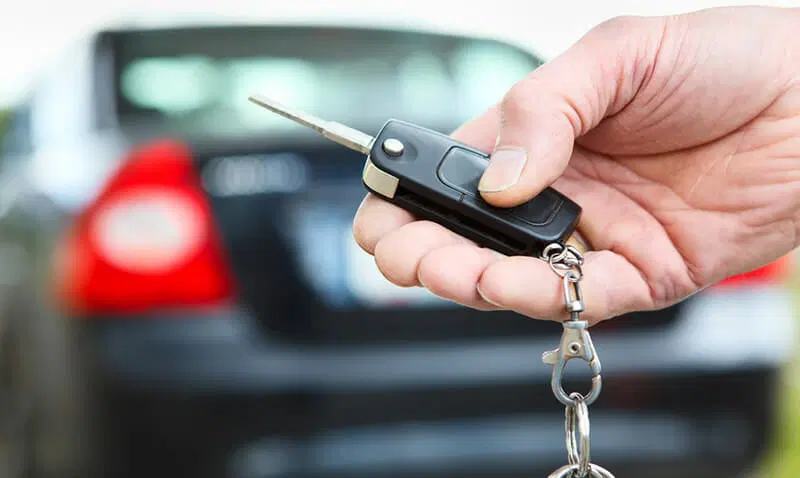The Role of Technology in Enhancing Security Guard Efficiency
Table of Contents
ToggleIntroduction
The security industry has experienced significant advancements due to rapid technological progress. These innovations are playing a pivotal role in enhancing the efficiency and effectiveness of security operations. From surveillance systems and mobile apps to drones and artificial intelligence, technology is redefining the role of security guards. This article will explore the various ways in which technology is transforming security services and boosting the productivity of security guards.
1. The Evolution of Security Guard Roles
Traditionally, security guards focused on physical tasks such as patrolling and visual monitoring. Their responsibilities were largely manual, requiring constant vigilance to identify potential threats. However, with the introduction of advanced security tools, the role of security personnel has evolved significantly. Today, security guards leverage modern technology, such as surveillance systems, access control tools, and data-driven insights, to enhance their overall efficiency and coverage.
2. Surveillance Technologies: CCTV and Beyond
One of the most significant advancements in security technology is the evolution of surveillance systems. While Closed-Circuit Television (CCTV) has been a staple for years, today’s systems include high-definition cameras, night vision capabilities, and advanced motion detection. These improvements allow security personnel to monitor activities more effectively and identify suspicious behavior in real-time. Video analytics now assist guards by analyzing footage, reducing the chance of human error. Additionally, remote monitoring options allow security teams to oversee multiple locations without being physically present. For static security services that use these technologies, visit our static security guards page.
3. Mobile Apps and Communication Tools
Mobile apps and communication platforms have drastically improved the way security guards operate. Real-time reporting, GPS tracking, and communication apps have streamlined many day-to-day tasks. Security guards can now use mobile patrol apps to report incidents instantly, receive updates from supervisors, and manage their patrol routes efficiently through GPS tracking. These tools have enhanced coordination, reduced response times, and improved communication between team members. For more on how mobile patrol services utilize these tools, explore mobile patrol security services.
4. Access Control Systems
Access control systems, such as biometric scanners, RFID, and smart cards, are now integral to security operations. These systems reduce the need for manual oversight by automating the process of granting and restricting access to buildings and restricted areas. By integrating access control systems with surveillance and alert technologies, security guards can quickly detect unauthorized access and respond accordingly. This not only increases efficiency but also improves overall security by minimizing human errors.
5. Drones and Aerial Surveillance
Drones are increasingly being deployed in the security industry for wide-area surveillance and monitoring hard-to-reach locations. Equipped with high-resolution cameras and live streaming capabilities, drones provide real-time footage, helping security personnel assess threats from the air. This aerial advantage enhances situational awareness, enabling quicker response times. Drones are especially beneficial in large-scale venues, industrial facilities, or events where traditional ground patrols may not offer full coverage. Their ability to access difficult terrain and remote areas further adds to their value in security operations.
6. AI and Machine Learning for Predictive Security
Artificial intelligence (AI) and machine learning have introduced new ways for security teams to predict and prevent potential threats. AI algorithms can analyze large amounts of data from surveillance systems, identifying patterns and predicting security breaches before they happen. For example, facial recognition technology, combined with AI, allows guards to identify individuals of interest quickly. Similarly, machine learning algorithms can detect anomalies, such as unusual behavior or unauthorized access, giving guards a heads-up on potential issues. The integration of AI has made security operations more proactive, leading to faster interventions.
7. IoT (Internet of Things) in Security Operations
The Internet of Things (IoT) has revolutionized security operations by creating a connected ecosystem of devices that work in unison. IoT technology connects devices such as cameras, sensors, and alarms, enabling real-time data exchange between them. This network allows for efficient monitoring and quicker response to incidents. Security guards benefit from IoT-enabled systems by receiving instant notifications and alerts, reducing their manual workload, and improving overall responsiveness. IoT also enables predictive maintenance for security equipment, ensuring minimal downtime.
8. Smart Wearables for Security Guards
Smart wearables, such as body cameras, GPS-enabled devices, and smart helmets, have become essential tools in the security industry. Body cameras provide a layer of accountability and transparency by recording interactions between guards and the public. GPS wearables ensure that supervisors can track the location of guards, improving patrol management and ensuring that all areas are adequately covered. Additionally, some wearables monitor a guard’s health and safety, ensuring they remain fit for duty. These technologies improve both the safety and productivity of security guards.
9. Cybersecurity and Data Protection
With the increasing use of technology, cybersecurity has become an essential aspect of security guard operations. Security guards must not only protect physical assets but also ensure the safe handling of sensitive digital information, such as access logs and surveillance footage. Guards are trained in basic cybersecurity practices to mitigate risks such as hacking, data breaches, and unauthorized access. By implementing robust cybersecurity measures, such as encryption and secure communication protocols, security teams can protect both physical and digital assets effectively.
10. Real-time Incident Reporting and Documentation Tools
Incident reporting is a critical aspect of security guard duties. Digital tools have simplified the reporting process, allowing guards to document incidents in real-time through mobile apps. Cloud-based systems ensure that reports are stored securely and can be accessed instantly for review. This shift from paper-based to digital reporting has not only improved the accuracy of incident documentation but also expedited the resolution process. Guards can focus more on active surveillance and less on administrative tasks.
11. Robotics in Security: An Emerging Trend
Robots are playing an increasingly significant role in modern security operations. These autonomous machines are capable of performing surveillance, patrolling, and threat detection, supplementing the work of human guards. Equipped with sensors, cameras, and AI algorithms, security robots can cover vast areas, detect unusual activities, and report them in real-time. While robots cannot replace human security guards, they can complement their efforts, especially in environments that are hazardous or difficult to monitor manually.
12. Cost Efficiency and ROI of Technology Integration
Integrating technology into security services not only enhances operational efficiency but also delivers cost savings in the long term. Automated systems, such as AI-driven surveillance and drones, reduce the need for large security teams, thus lowering labor costs while maintaining high levels of coverage. The ability to monitor multiple locations from a centralized point further improves resource allocation. Organizations that invest in security technology often see a higher return on investment (ROI) through reduced security incidents, quicker response times, and improved asset protection.
13. Training Security Guards for the Technological Shift
As technology continues to play a more significant role in security operations, it is crucial that guards receive ongoing training to stay updated on the latest tools and systems. Training programs that focus on new surveillance technologies, mobile apps, and AI-driven systems help ensure that security personnel remain effective in their roles. Continuous education not only improves job performance but also boosts guard confidence in handling high-tech security solutions. Businesses that prioritize training are better positioned to adapt to the evolving landscape of security.
14. Conclusion: The Future of Security Guard Services with Technology
Technology has revolutionized the security industry, making guards more efficient and effective in their roles. As innovations like AI, IoT, and drones continue to develop, the security sector will become even more reliant on these advancements. Balancing human expertise with technological tools is key to delivering high-quality security services. For more insights into the challenges faced by security guards and how technology is helping to overcome them, visit common challenges faced by security guards in Australia.




